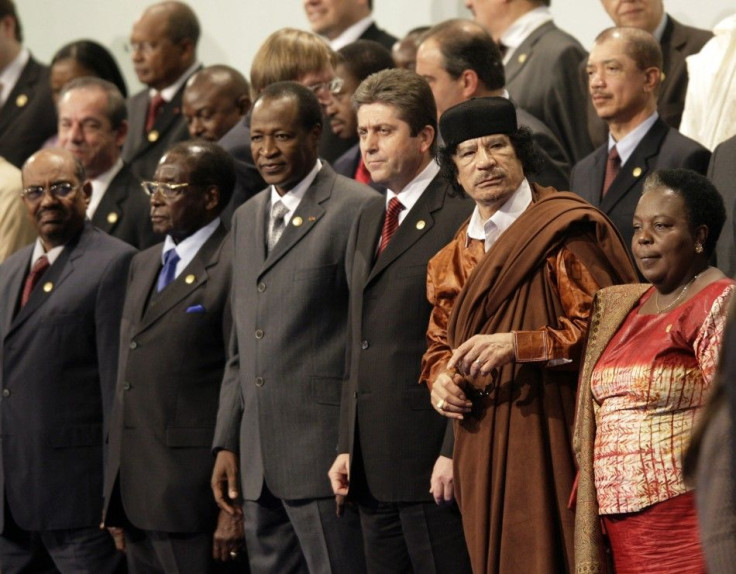Gadhafi to Burkina Faso: What May be in Store for the ex-Libyan Leader?

As a Libyan convoy of almost 200 vehicles rolls through Niger, speculation swirls that Moammar Gadhafi might be on an escape route to Burkina Faso.
While Nigerien officials are denying that Gadhafi is aboard the convoy, it has been reported that some of this inner circle is traveling through Niger, including General Mansour Daw. Libyan rebels also think that Gadhafi's son Saif al-Islam could be part of the convoy.
Saif al-Islam, like his father, is wanted by the International Criminal Court. Burkina Faso is a signatory to the I.C.C., yet earlier said it would accept Gadhafi inside its borders in the name of peace. Additionally, if Gadhafi isn't on board, the convoy could still escape domestic persecution by remaining in West Africa.
In August, the West African nation said it could offer asylum to Gadhafi if he were to enter the country. But as a signatory, Burkina Faso would be required to extradite Gadhafi to The Hague, the Netherlands. The government knows this, and has already changed its statement to appease the international community.
“We cannot grant him asylum because for the past three years we have not had good relations with him,” said government spokesman Alain Traore. “We don’t see why we would stick our neck out for him and create problems for ourselves.”
Before the Libyan revolution began in February, Burkina Faso habitually accepted a large amount of economic aid from Libya. Gadhafi saw himself as the King of African Kings, and spent the latter years of his reign trying to build solidarity between African states. He was the chairman of the African Union from 2009 to 2010, and made pan-African unity a top priority.
If Gadhafi or his loyalists did end up in the African nation, what would life in Burkina Faso be like?
Burkina Faso gained its independence from France in 1960, nine years before Gadhafi overthrew Libya's King Idris and assumed control of the nation. Like Libya, Burkina Faso has a Muslim majority, and about 60 percent of the population practices Islam, while 20 percent are Catholic, according to the U.S. Central Intelligence Agency.
Yet, with little to offer abroad economically, the Gross Domestic Product of Burkina Faso is a fraction of Libya's, and Burkina Faso is one of the continent's poorest nations.
About 90 percent of Burkinabes are subsistence farmers and the country has few natural resources. According to 2004 figures, almost half (46 percent) of the population is below the poverty line, and unemployment is at 77 percent, compared to 30 percent in Libya.
Now officially a parliamentary republic, Burkina Faso's post-colonial political history has been rife with military coups, juntas and instability. Much like Gadhafi, President Blaise Compaoré assumed power after a 1987 military coup and has retained it ever since. But, unlike Gadhafi, Compaoré has won popular votes to keep his title, although the legitimacy of the elections has come into question.
In April, Compaoré dissolved his own government amidst disloyalty in his cabinet, after members of the army turned on him and forced him to flee the capital. Additionally, an ongoing conflict with neighboring Ivory Coast has increased the instability of Burkina Faso in recent years.
The list of former friends willing to take in Gadhafi is dwindling, and once-close allies Algeria, Russia and Niger have all turned their backs on the Libyan despot, while Syria and Egypt are too chaotic to offer support. He still has a sympathizer in Venezuela's Hugo Chavez, but finding a plane to South America will be costly and difficult.
Yet, what has been made clear on many occasions is that money buys protection, and if the rumors about the Libyan caravan being full of gold and jewels are true, Gadhafi's best bet at escaping rebels is through his wallet.
© Copyright IBTimes 2025. All rights reserved.





















